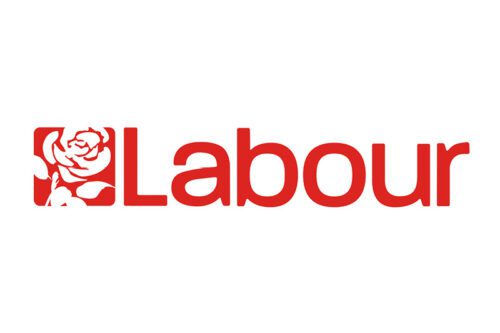Potential employment law implications following the 2024 general election

Contributing author: Loïs Donna Amoko-Rousselin - Legal Intern at RWK Goodman
As the political landscape shifts, the impact on employment law could be profound depending on which party is elected in the early hours of 5th July. In their respective manifestos, Labour, Conservatives, and the Liberal Democrats each propose distinct shifts that could transform the workplace.

If Labour wins the election as the polls suggest, the party will introduce an Employment Bill within the first 100 days of being in power which according to the Labour manifesto will cover the following areas:
Redundancy rights and TUPE reform
Redundancy consultation
The Labour Party plans to overhaul collective consultation requirements during the redundancy process by basing them on the total number of affected employees across the entire business, rather than at individual workplaces. Currently, consultation depends on the number affected at each specific site, a practice that could change under Labour’s proposal, potentially necessitating collective consultation in more instances. This would align with practices in several EU countries, standardising redundancy consultation requirements across broader organisational scopes. Implementing this plan would necessitate meticulous tracking of redundancy figures by multi-site employers and will likely increase the frequency of collective consultation procedures.
TUPE enhancements:
Labour intends to bolster rights and protections under the Transfer of Undertakings (Protection of Employment) regulations (TUPE). Although the specifics of these enhancements are yet to be fully detailed, they are likely to include proposals to broaden the protections to include workers as well as employees. By contrast, the Conservative government’s recent consultation suggests a preference to limit TUPE protections to employees only.
Fire and rehire
Prohibition of fire and rehire
The Labour Party aims to eliminate the practice of so called ‘fire and re-hire’ where employers dismiss their workforce and rehire them on less favorable terms. This tactic, often used to reduce labour costs, would be prohibited under the proposed legislation.
Although the party recognises that businesses often need to restructure to remain viable, Labour’s plans aim to ensure that any such measures must be conducted through proper processes rooted in dialogue and mutual understanding between employers and employees. The goal is to provide effective remedies against abuse and to strengthen what is considered to be an inadequate statutory code of practice.
However, the plan does not provide further details on how this will be achieved nor whether employers will retain any flexibility when, despite significant consultation, no agreement has been reached.
Basic day one rights: Elimination of qualifying periods
One of the most transformative proposals in Labour’s strategy is the elimination of qualifying periods for basic employment rights, providing stronger protections for all workers from the outset, specifying rights including unfair dismissal claims, sick pay, and parental leave. Currently, employees typically need two years of service to qualify for unfair dismissal claims, except in cases of automatically unfair dismissals; Labour believes that this places undue risk on individuals when changing jobs. Removing this qualifying period will offer workers greater job security and mobility.
The plan emphasises that this change will not hinder fair dismissals or crucially the use of probationary periods, as long as they are conducted with clear and transparent rules and procedures.
Granting the right to bring an unfair dismissal claim from day one represents a significant shift in employment law. Employers will need to adapt by implementing more thorough recruitment processes to ensure a good fit from the beginning and making more effective use of probationary periods.
Abolition of zero-hour contracts
Labour aims to eliminate one-sided flexibility in employment arrangements by prohibiting what are described as ‘exploitative’ zero-hour contracts (implying that not all zero hours contracts will be banned). The aim is to ensure that every job offers a baseline level of security and predictability, guaranteeing workers the right to a contract that accurately reflects their regular working hours, assessed over a 12-week period.
This initiative seeks to enhance stability and fairness in employment agreements, aligning work conditions more closely with employees’ actual working patterns.

If The Conservative Party win the election the party will introduce:
Reforming fit notes
The Conservative Party have announced their plans to implement stricter procedures for employees obtaining Fit Notes during periods of sickness absence from work. Under the proposed changes, medical professionals (crucially, not GPs) would be required to take a more objective approach in assessing these absences, with a strong emphasis on implementing supportive measures aimed at facilitating the individual’s return to work.
The overarching goal is to move away from the perception of GPs solely advocating for workers and instead focus on providing accurate assessments of their health conditions from a more objective standpoint.
Employment tribunal claims
Whilst Labour intends to remove perceived barriers to employees lodging claims in the Employment Tribunal by reducing the minimum service requirement for unfair dismissal claims, the Conservatives proposed to retain the two-year qualifying period as well as the three-month time limit in respect of the majority of tribunal claims.
Following the completion of a consultation process earlier this year, if returned to office, the Conservative government will likely reintroduce the employment tribunal fees that were initially abolished by the Supreme Court in 2017 (following their introduction in 2013). That said, it is expected that these fees will be fixed at far more nominal amounts than those levied previously in order to to avoid any challenges that such fees are an obstruction to access to justice.
Non-compete clauses
The Conservatives propose to limit the extent of post termination restrictive covenants in employment contracts. This aims to liberalise the rules on post termination activity and to expedite employees’ reintegration into the job market.

If The Liberal Democrats win the election the party will introduce:
Employment and sick pay reforms
Employment rights and status:
In their own words, the Liberal Democrats aim to modernise employment rights in response to the so called ‘gig economy’ which relies heavily on zero hours contracts. The party proposes a new “dependent contractor” status, designed to bridge the gap between traditional employment and self-employment. This would ensure that workers under this staus receive basic entitlements such as minimum earnings, sick pay, and holiday benefits.
In addition, the party proposes to increase the minimum wage for zero-hours contract workers and agency staff, whilst granting them the right to request a fixed-hours contract after 12 months which would be protected against unreasonable refusal.
Furthermore, the burden of proof in employment tribunals regarding the employment status would shift from the employee to the employer, reflecting what the party describes as commitment to fairer workplace practices.
Sick pay reforms:
The Liberal Democrats pledge to overhaul statutory sick pay, making it accessible to workers earning less than £123 per week (the current limit). The party’s proposals also advocate aligning sick pay rates with minimum wage levels and ensuring that payments commence from the first day of absence, rather than the fourth.
Furthermore, the Liberal Democrats plan to assist small businesses in managing statutory sick pay costs through consultation, aiming to implement supportive measures effectively – the details of which are yet to be realised.
Employment immigration
Liberal Democrat proposals concerning business immigration changes include replacing the current salary threshold scheme for work visas with a merit-based system, emphasising qualifications and skills over income levels for visa applicants. This would be yet another change to the salary requirements for skilled workers following significant changes introduced by the government earlier this year.
These proposed reforms underscore the Liberal Democrats’ focus on the rights of vulnerable workers and small businesses under the stated aim of creating a more balanced employment environment.
The proposed changes to employment law by the three main UK political parties, reflect their respective distinct visions for the future of the UK workforce and where they feel effective change is most needed. Labour’s stated focus is on enhancing worker protections, ending exploitative practices, and ensuring basic rights from day one. The Conservatives place emphasis on stricter procedural standards and maintaining current employment structures with some adjustments. Meanwhile, the Liberal Democrats aim to modernise rights within the gig economy and the provision of greater flexibility and security for workers. Regardless of the election’s result, what is sure is that significant changes are on the table which promise to impact employment law significantly in the near future.
Our employment services and support
Legal insight from our employment law experts
View more articles related to Employment and Employment


















